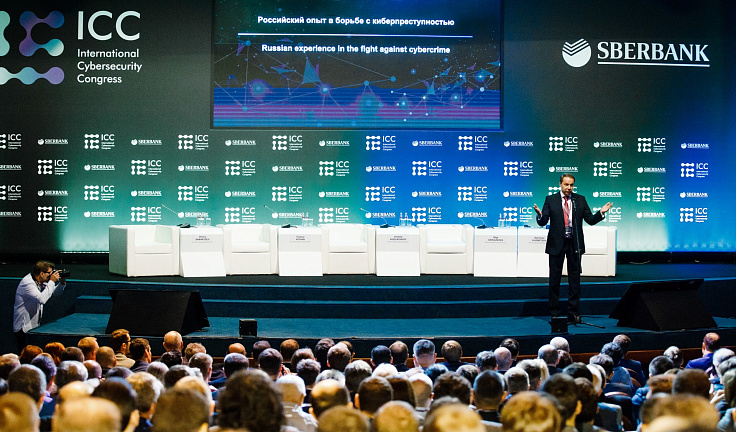
The main cyberthreats of the coming years will be determined by developing technologies — IoT, 5G, and AI.
New threats will be one of the key topics of the 2nd International Cybersecurity Congress which Sberbank will hold on 20–21 June.
The congress’s operator is Roscongress.
Sberbank’s specialists have identified the most pressing cybersecurity threats of the near future. They include threats to the systems of government bodies and private companies — phishing, data leaks, and risks that accompany technological development: cloud services, BYOD (bring your own device), artificial intelligence, the Internet of Things, and 5G. This list is based on continuous analysis of trends carried out by Sberbank’s Cybersecurity Service, best practices, and the reports of major corporations.
Phishing continues to be the primary method for penetrating corporate infrastructure — more than 60% of attacks on the banking industry in Russia and a number of European countries involve phishing. Since the start of the year, specialists of Sberbank’s Cybersecurity Service have identified and blocked almost 2,000 unique phishing resources that imitate the bank’s website. Educating users is the primary method of combatting phishing.
Over the past three years, the global number of data leaks has increased by 98%. In 2019 more than 500 mln records have already been stolen from various sources. Government agencies in a number of countries have been hit by attacks that seek to steal information. But targeted attacks are not always to blame; often leaks are accidental due to insufficient cybersecurity knowledge of personnel and their lack of awareness of security issues.
Phishing and leaks were also among threats of previous years. In 2019, the top five current and future risks also includes the widespread use of mobile devices and BYOD, deployment of AI, 5G, and the Internet of Things.
AI can considerably simplify many routine tasks carried out by cybersecurity teams. Recently there has been exponential growth in the volume of data processed in various systems, and it is impossible to keep progressing in this area without AI. However, AI is also appealing to criminals who will use it as a tool for carrying out attacks on data processing systems and to considerably strengthen their capabilities.
Criminals are increasingly frequently using AI and machine learning to identify vulnerabilities, carry out phishing attacks, circumvent biometric identification systems, create harmful software, and crack passwords.
The US, South Korea and China have launched superfast 5th generation (5G) networks. However, 5G has the potential to increase the scale of attacks on IoT devices and make them more massive. The potential for using the Internet of Things as a springboard for attacks is growing. Currently there are more than 26 bln IoT devices in the world, and by 2025 there will be at least three times more. Obviously these devices are extremely convenient for their users, however the more IoT devices that exist, the bigger the risk posed to cybersecurity as hackers can not only gain control of the devices to steal data or extort money from users, but also employ them to carry out massive cyberattacks. Such attacks will have significant consequences for the companies that they target, and even entire sectors of the economy.
Sberbank considers that issues of cybersecurity are among the most pressing modern threats to humanity. At the bank’s initiative, on 20–21 June 2019 the second International Cybersecurity Congress (ICC) will be held in Moscow. At the ICC, practical methods for countering the key global cyberthreats will be discussed. Discussions will involve leading industry specialists, representatives of major global companies and countries — everyone who is interested in making the digital world a more secure place.
The ICC is a unique international cross-industry platform for global dialogue between representatives of government agencies, international business leaders and recognised industry experts on the most pertinent and acute issues of cybersecurity in the context of globalisation and digitalisation.
The second ICC will be a key event of Global Cyber Week, an international week on cybersecurity that will be held in 17–21 June in Moscow. It will be the largest industry event in Russia and Eastern Europe. It will unite several industry forums which will be attended by representatives of Russian and foreign state institutions, international organisations and companies, as well as independent experts and researchers.
The technical conference on practical cybersecurity OFFZONE will open Global Cyber Week which will be held on 17–18 June. On 19 June, an international online training session on international business cooperation to fight against digital threats titled Cyber Polygon will be held. It will be possible to watch the participants’ progress online in real time.
The first ICC was held in Moscow on 5–6 July 2018. The congress united more than 2,500 participants and about 700 organisations from more than 50 countries. Russian President Vladimir Putin welcomed the ICC’s guests in his opening speech.